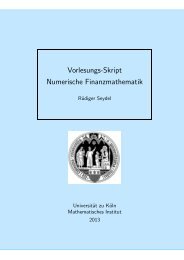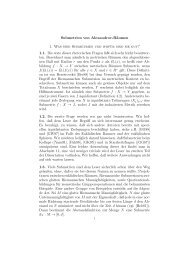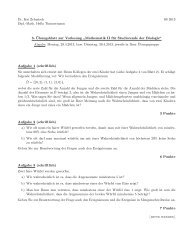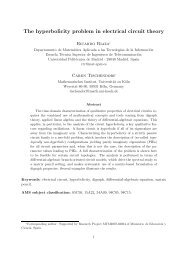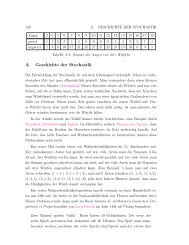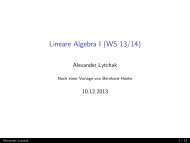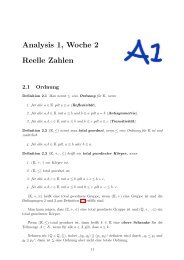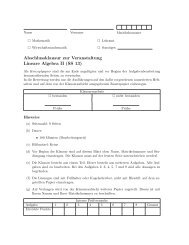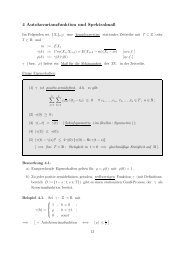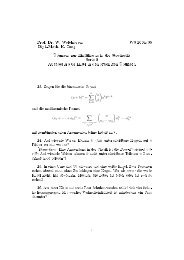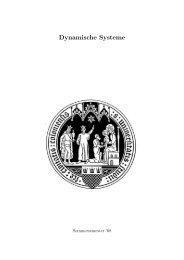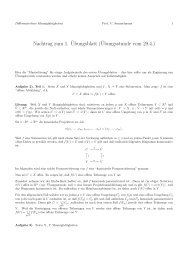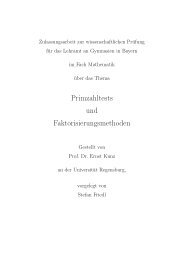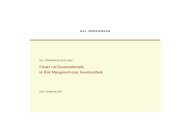Inhaltsverzeichnis - Mathematisches Institut der Universität zu Köln
Inhaltsverzeichnis - Mathematisches Institut der Universität zu Köln
Inhaltsverzeichnis - Mathematisches Institut der Universität zu Köln
Create successful ePaper yourself
Turn your PDF publications into a flip-book with our unique Google optimized e-Paper software.
DMV Tagung 2011 - <strong>Köln</strong>, 19. - 22. September<br />
Simon Riche<br />
Université Blaise Pascal, Clermont Ferrand II<br />
Constructible sheaves of affine Grassmannians and geometry of the dual group<br />
Works of many others (including Kazhdan-Lusztig, Ginzburg, Mirkovic-Vilonen, Bezrukavnikov) show that<br />
there exist fruitful connections between the algebraic geometry of some varieties attached to a reductive<br />
group and the constructible geometry (or topology) of some varieties attached to the loop group of the<br />
dual reductive group (in the sense of Langlands). I will describe new results in this direction obtained in<br />
joint works with Pramod Achar and Victor Ginzburg.<br />
Sarah Scherotzke<br />
Université Paris Di<strong>der</strong>ot - Paris 7<br />
Linear recurrence relations for cluster variables of affine quivers<br />
Recently, Assem Reutenauer and Smith have introduced families of sequences associated to the vertices<br />
of an acyclic quiver Q. These sequences consist of cluster variables. They proved that if the sequences<br />
associated with Q satisfy linear recurrence relations, then Q is necessarily affine or Dynkin. Conversely,<br />
they conjectured that the sequences associated with a quiver of Dynkin or affine type always satisfy linear<br />
recurrence relations. In my talk I will present a proof of the Assem-Reutenauer-Smith conjecture using the<br />
representation-theoretic approach to cluster algebras. More precisely, our main tool is the categorification<br />
of acyclic cluster algebras via cluster categories. This is joint work with Bernhard Keller.<br />
Leonard Scott<br />
University of Virginia<br />
New graded methods in representation theory<br />
This talk describes recent work with Brian Parshall. Given a finite dimensional algebra A, there is a familar<br />
graded algebra grA obtained by summing quotients of successive powers of the radical of A. Forming grA<br />
might be a first step in, say, trying to find a Kos<strong>zu</strong>l algebra related to A. However, it is notoriously difficult to<br />
prove Kos<strong>zu</strong>lity of grA or other nice properities, such as quasi-heredity (even when A is quasi-hereditary).<br />
We succeed in proving both Kos<strong>zu</strong>lity and quasi-heredity of grA in some familiar cases involving algebras<br />
arising from quantum and algebraic groups. Known Kos<strong>zu</strong>lity results of An<strong>der</strong>sen-Jantzen-Soergel for the<br />
small quantum group and characteristic p > 0 restricted enveloping algebra are a starting point, though<br />
some methods are quite general. The results apply in type A to q-Schur algebras at a root of unity (char.<br />
0) and Schur algebras (char. p), with restrictions.<br />
Literatur<br />
H. An<strong>der</strong>sen, J. Jantzen, W. Soergel, Representations of quantum groups at a pth root of unity and of<br />
semisimple groups in characteristic p, Astérique 220 (1994).<br />
B. Parshall and L. Scott, New graded methods in representation theory. arXiv:0910.0633.<br />
17



